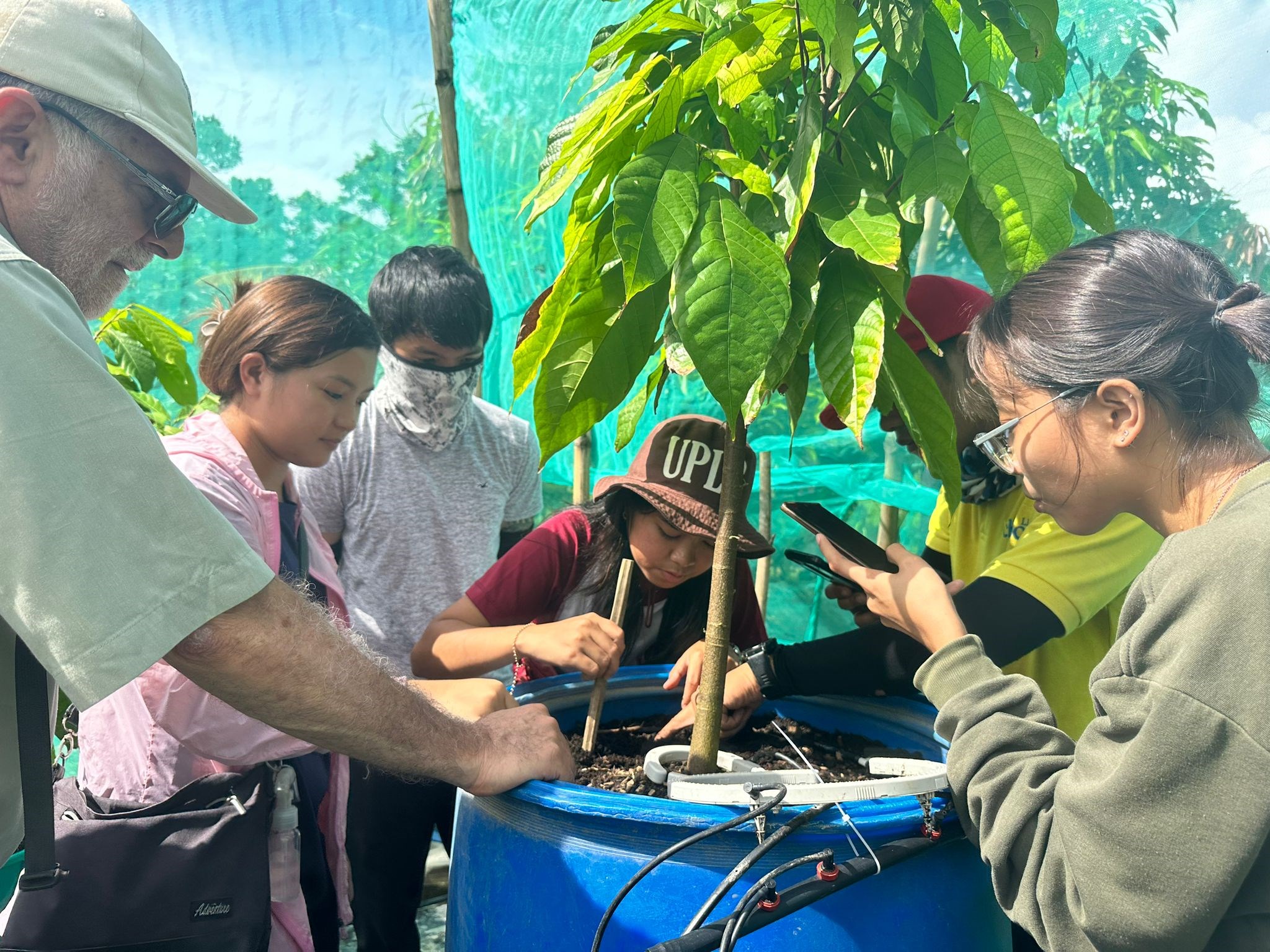Advancing agricultural research and development: A knowledge exchange between Israel and the Philippines
By James Tababa

In an effort to strengthen the agricultural sector, a knowledge exchange event was held on August 30, 2023 with the theme “Knowledge Exchange on Transforming and Innovating the Agricultural Research and Development Agenda through the Lens of Israel and the Philippines.” The event aimed to facilitate an exchange of knowledge and ideas between Israeli and Filipino agricultural experts.
The event featured a series of engaging discussions including a comprehensive overview of Israel's agricultural research and development agenda, a comparative analysis between the agricultural research and development agendas of Israel and the Philippines including successful strategies, areas for improvement, and lessons that could be applied to enhance the Philippines' agricultural sector. Followed by a panel discussion about the balanced fertilization strategy of the Philippines.
Israeli Deputy Ambassador Esty Buzgan highlighted the significance of international collaboration and innovation in agriculture, especially about the pressing global issue of food security, emphasizing that the goal shared by everyone present was to ensure that no child goes to bed hungry. She stressed the importance of collective efforts in making this goal a reality.
“Farming is an art, a science, and an endeavor that unites cultures, nations, and generations,” Ambassador Buzgan said. “It's a pursuit that unites Israel and the Philippines in our shared quest for sustainable prosperity.”
Professor Uri Yermiyahu, the Senior Researcher at the Agricultural Research Organization (Volcani Center) of Israel, highlighted Israel's status as a global leader in arid-condition farming. He pointed out that Israel's success in this field is rooted in innovative policies and regulations that encourage sustainable practices and profitable crop selection. Fundamentally, Israel has harnessed water-saving technologies, such as drip irrigation, to efficiently manage scarce water resources. The use of protective structures, combined with a commitment to disseminating vital information on irrigation and plant water requirements. Integrated approaches to crop management, as well as substantial investments in education, extension services, and research and development, further support and empower farmers in their quest for sustainable and productive agriculture.
A notable achievement that Professor Yermiyahu proudly mentioned was the UNESCO International Research in Life Science Prize awarded to the Volcani Center. This prestigious recognition commends the center's groundbreaking innovations and methodologies in agricultural research and practical applications that directly contribute to food security in arid, semi-arid, and desert environments
Israel is renowned for its diverse agricultural landscape, from date palms, almonds and vegetables. Professor Yermiyahu also mentioned ongoing research efforts, including cacao production, showcasing the country's commitment to exploring new frontiers in crop production.
Gina Nilo, Director of the Bureau of Soils and Water Management showcased the Balance Fertilization Strategy, a nutrient management approach to enhance fertilizer use efficiency by applying plant nutrients in the right quantities or organic and inorganic fertilizer to rice. Acknowledging the pressing issue of rising fertilizer costs, this is the collaborative efforts of BSWM, PhilRice (Philippine Rice Research Institute), and the regional offices of the Department of Agriculture in advocating a long-term sustainability approach to reduce the use of commercial fertilizer.
Leylani Juliano, Chief Science Research Specialist at the Philippine Rice Research Institute (PhilRice), highlighted the importance of complementing the Balanced Fertilization Strategy with -edge tools and technologies for site-specific fertilizer recommendations. Among these tools are the minus one element technique (MOET) to determine the nutrient content of the soil for rice production, the MOET mobile app to calculate the fertilizer needed based on the target yield, the Leaf Color Chart (LCC) and LCC mobile App to determine the nitrogen fertilizer needed to apply as a top dressing, and the Rice Crop Manager to compute the target yield based from the practices of the farmers.
Thea Hernandez of the Department of Agriculture - Bureau of Agricultural Research (DA-BAR), mentioned the role of the National Agriculture Research for Development and Extension Agenda in guiding agricultural research priorities for the next five years, which include the Balance Fertilization Strategy. Through collaborative efforts with various agencies and State Universities and Colleges (SUCs), DA-BAR is actively developing technologies that address farmers' and fisherfolk's concerns, with a specific focus on promoting sustainable practices like organic agriculture.
Charlie Palilio of the Bureau of Agriculture and Fisheries Standards (BAFS) stated the bureau's role in regulating and accrediting third-party certifying bodies for organic agriculture. He said that the research outputs of SUCs serve as the foundation for establishing Philippine national standards in ensuring the quality and compliance of organic fertilizers available in the market.
The knowledge exchange event exemplified the power of collaboration and shared expertise in the pursuit of agricultural innovation and sustainability. The valuable insights and the collective efforts of both Israeli and Filipino agricultural experts have set a promising course for the future of agriculture in the Philippines.
Photo courtesy of Danica Marollano
Read more about farming and gardening at agriculture.com.ph